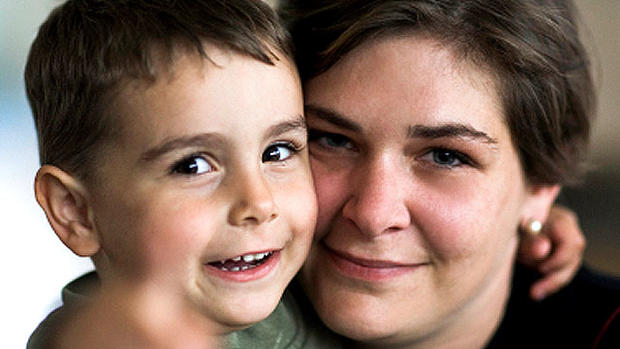Controversy over panel's decision on autism screening
A government task force says more research is needed to determine if healthy toddlers should be routinely screened for autism - despite guidelines from other medical groups that urge such screening.
Doctors are supposed to routinely check if youngsters are meeting appropriate developmental milestones or show signs of developmental disorders including autism. And specialists say parents should immediately point out any concerns, such as noticing that a child doesn't make eye contact, so they can receive appropriate diagnostic testing.
Monday's draft recommendation addresses another step, whether doctors also should use parent questionnaires and similar tools to screen for autism in children under 3 who have no obvious symptoms.
The U.S. Preventive Services Task Force said there's insufficient evidence to recommend either for or against so-called universal screening, and that doctors should use their own judgment until more research is in.
While early treatment is promising for the more severely affected, that hasn't been studied in children who have mild symptoms that may be caught only in screening, said task force vice chairman and pediatrician Dr. David Grossman. Other questions include what age to screen, and what tool to use.
"We're not saying it's the wrong thing. We're just saying we're not sure," Grossman said.
The American Academy of Pediatrics said the recommendation runs counter to its own guideline that all children be screened at ages 18 months and 24 months, in addition to standard developmental checks. Other health groups also support screening.
"You identify the kids early, you get them to treatment early, and the outcome is better," said Dr. Susan E. Levy of the Children's Hospital of Philadelphia and AAP's autism subcommittee.
The advocacy groups Autism Speaks and the Autism Science Foundation called the task force's statement "troubling." In a joint statement, the groups said, "Screening leads to earlier identification of autism and opportunities for early intervention, which improves the lives of children with the disorder."
An estimated 1 in 68 children in the U.S. has autism, an increase of nearly 30 percent in recent years. Experts say the increase is at least partly due to greater awareness and improved diagnostics.
The task force's draft recommendation is open for public comment for 30 days.
